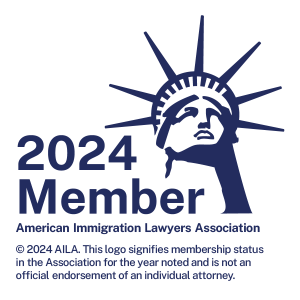Illegal Entry followed by Advance Parole under TPS and DACA leads to Adjustment of Status in the United States
For immigrants in the United States who entered illegally without a valid passport or visa in their name and who had little or no options to obtain a green card in the U.S., there is a small window of opportunity to get a green card in the U.S. under a new case law.
By way of background, in order for an immigrant who entered the U.S. illegally to be able to adjust status or get a green card in the U.S., they must meet the following requirements:
1. Must be the beneficiary of a family-based petition (Form I-130) filed before April 30, 2001; or
2. Must be an immediate relative of a U.S. citizen (spouse, child under age 21 or parent of a U.S. citizen) with an approved Form I-130 and approved Form I-601A Provisional Waiver; or
3. Must be an immediate relative of a U.S. citizen (spouse, child under age 21 or parent of a U.S. citizen) military personnel (active or retired) and be approved for parole in place; or
4. Must be an immediate relative of a U.S. citizen (spouse, child under age 21 or parent of a U.S. citizen) who currently has Temporary Protected Status (TPS) or Deferred Action for Childhood Arrivals (DACA) and traveled outside the U.S. under Advance Parole and was admitted into the U.S. after a brief trip outside the U.S.
For purposes of this article, we will focus on #4 – eligibility for a green card after illegal entry into the U.S. – followed by granting of TPS or DACA – followed by a brief trip outside the U.S. using Advance Parole – followed by an admission stamp in the passport when returned to the U.S. If the above steps are followed, then the illegal immigrant will be considered to satisfy the “inspection and admission or parole” requirement of INA § 245(a) and would be eligible for adjustment of status to a lawful permanent resident in the U.S.
Under Matter of Arrabally and Yerrabelly, 25 I & N Dec. 771 (BIA 2012) and the regulatory changes at 8 C.F.R. § 245 and 8 C.F.R. § 1245, the illegal immigrant in the U.S. would obtain advance parole, travel abroad, and return to the United States as a parolee. Individuals with TPS or Deferred Action for Childhood Arrivals (DACA), who have no criminal issues that would trigger mandatory detention or inadmissibility, may travel on advance parole. Upon their return to the United States, they have satisfied the “inspected and admitted or paroled” element of INA § 245(a). Their status as immediate relative beneficiaries permits them to take advantage of the exceptions against adjustment of status carved into INA § 245(c) for those who worked without authorization and those who are no longer in status, and Matter of Arabally and Yarabelly eliminates the need for a waiver of the ten-year bar.
Illegal immigrants who have been granted advance parole are a bit nervous about traveling outside the United States even if it means upon their return to the U.S., they can apply for adjustment of status to lawful permanent resident status and get a green card in the U.S. There are many complex immigration laws being described and explained briefly in this article and if not understood and applied correctly, then the results can be detrimental. We advise you to speak to an experience immigration lawyer, such as Attorney Gail Seeram, before deciding to depart the United States after entering and residing in the United States illegally.
For more information, contact Gail Law Firm:
Email: [email protected]
Phone: 1-877-GAIL-LAW or 407-292-7730
www.MyOrlandoImmigrationLawyer.com
FREE in-office consultation – FREE Live Chat
Copyright © Law Offices of Gail S. Seeram, 2016. All Rights Reserved.













